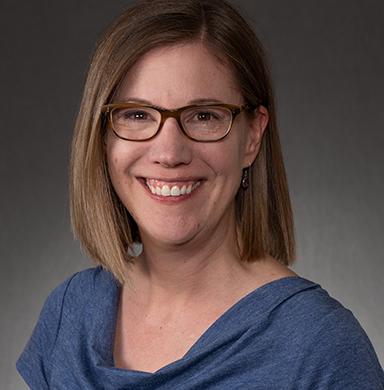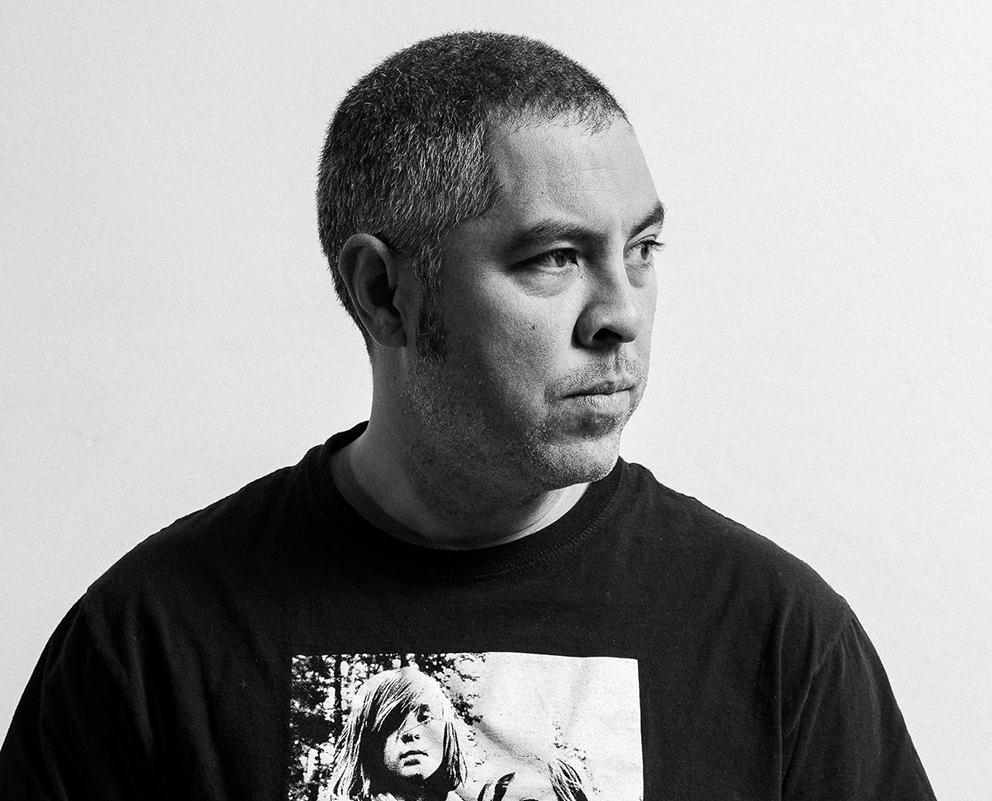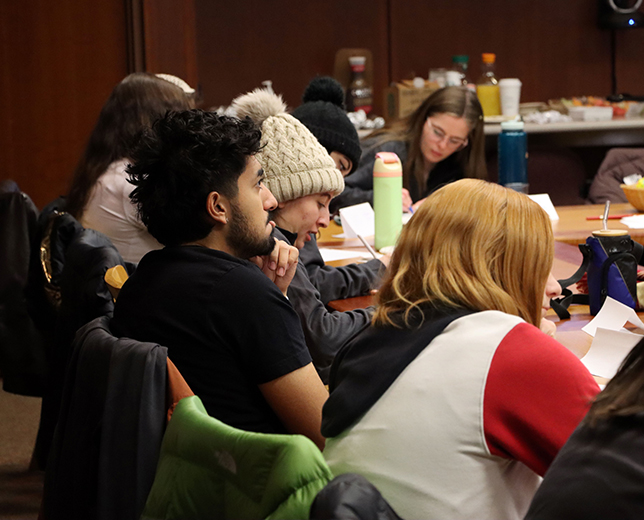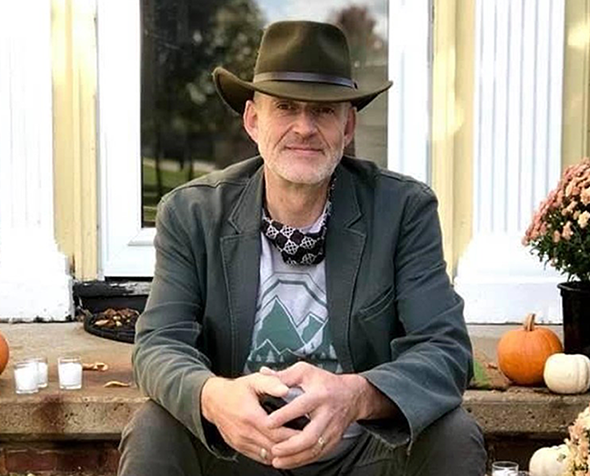CAHSS Denver Publishing Institute: 50 Years of Preparing Students for Diverse Careers in Book Publishing
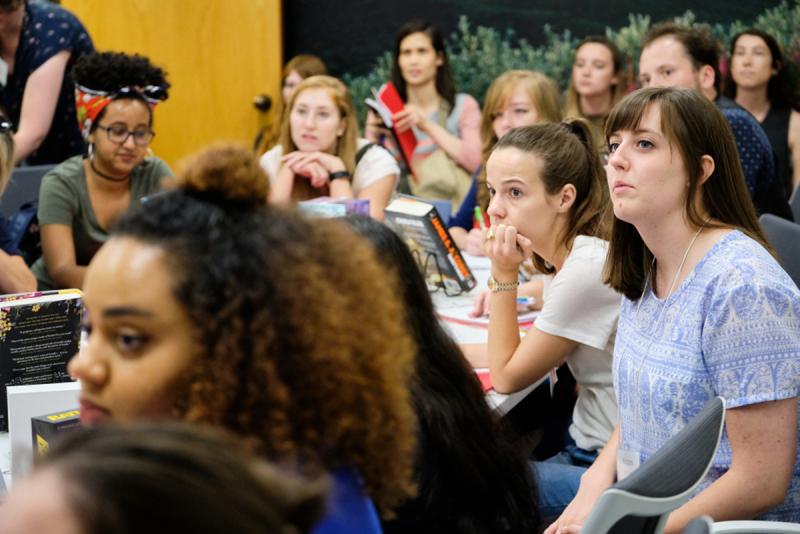
“I found my first job in publishing through the Denver Publishing Institute. 15 years later, I've worked in marketing for college textbooks, spiritual nonfiction, and now I dream up marketing campaigns for fantasy, science fiction and horror titles. I have a career that I love, and it all started with DPI." -Tori Henson, 2010, marketing manager at Del Rey, an imprint of Penguin Random House.
E-books, digital marketing and AI’s role in editing were still largely the stuff of science fiction in the summer of 1976 when the University of Denver launched the Denver Publishing Institute (DPI ). But mergers and acquisitions had already begun rocking the traditional book publishing world.
“Before the ‘70s publishing companies were mostly family businesses but when large corporations began buying up privately held publishing companies, interest developed to streamline the knowledge of the business as opposed to having it handed down through the generations,” said DPI Director Jill Smith.
In a push to professionalize and broaden the publishing playing field, the American Association of Publishers (AAP) encouraged and supported universities in establishing programs to teach the business of book publishing and DPI was born. Founding DPI Director Elizabeth Geiser designed the curriculum, recruited faculty and students and managed the program while maintaining her position at Gale Research, an education and research publisher.
As it prepares to celebrate its 50th anniversary this July, DPI continues to offer a four-week summer program devoted to immersing students in the life cycle of book publishing — from acquisition and editing to production, marketing and publicity.
“We offer a holistic view of how a book comes into the hands of readers, in order to prepare our students for careers in publishing and help them figure out what role they want to play,” Smith said. “DPI is really expanding the idea of what publishing is and embraces the idea that publishing happens everywhere, and you can work in publishing everywhere, not just in New York.”
Ellie Larson graduated from DPI in the summer of 2024 and credits the program with helping her land her current position as a marketing associate for Human Kinetics.
“DPI broadened my job search, opened me up to the idea of working outside of editorial and encouraged me to explore publishers outside the 'Big Five' and New York City,” she said. “My role at Human Kinetics has been much easier to navigate because I understand the steps of the publishing process on both a large and small scale. I am immensely grateful for the tireless work it took to put on this program and to all the presenters who shared their experiences and answered our questions.”
Smith added that alumni like Larson attend for varied reasons. Some have already done publishing coursework or internships, some are just beginning to consider a publishing career, some already work in the field and some are career changers. All love books, and hope to deepen their knowledge about all aspects of the publishing process.
DPI also allows students with established lives to attend online, an option an increasing number of participants choose. Online students receive the same instruction, attend all the same lectures and participate in networking sessions via Zoom.
Over the years, DPI has tweaked its curriculum to prepare students to address developing trends in book publishing. “The essence of an editor and author collaborating to improve a manuscript, along with how a publisher chooses its manuscripts to define its mission and identity, remains enduring,” Smith said.
What continues to change, includes the growth of online retailers, technology’s role in collecting data to define a book’s audience and the role social media and digital marketing play in how readers find and purchase books. “We continue to adapt our DPI marketing and publicity curriculums to reflect these kinds of shifts and invite speakers who are on the cutting edge of how these books get into the hands of readers.”
Currently, the editorial process is beginning to feel the impact of AI. Smith recently attended training about the use of AI in performing first-run manuscript edits and research comparing the results of the AI versus human editor. “One study presented the results of a blind review, asking people whether they preferred the human- or AI-edited manuscript better,” Smith said. The human editor won.
Similarly, “as AI is constantly trolling the internet for content and reassembling it, the topic of whether authors and creators are receiving proper credit and compensation is evolving as we speak,” Smith said.
She added that publishing companies are striking deals with AI companies defining how they must source, credit and pay for the content they mine. “We have publishers lined up to talk directly to students during this summer’s institute about how their companies manage these kinds of issues.”
Smith takes the long view when it comes to the evolving world of book publishing.
“It’s been interesting to see how topics gurgle up in the industry and we then address them in our curriculum,” she said, citing the example of e-books. “At first there was this outcry that it would mean the death of the physical book. We quickly realized that it was more of a production, marketing and sales lecture, though, because e-books still require the same editing. And at this point, of course, e-books have become a part of the air we breathe in book publishing.”
